Genetic Analysis of Mendelian and Complex Disorders
17–23 July 2019
Wellcome Genome Campus, UK
Learn state-of-the-art statistical analysis techniques for genetic data collected on related and unrelated individuals.
Summary
This intensive, residential, computational course is aimed at scientists actively involved in genetic analysis of either rare (Mendelian) or complex human traits who anticipate using state-of-the-art statistical analysis techniques on genetic data collected on related and unrelated individuals.The programme provides a comprehensive overview of the statistical methods currently used to map disease susceptibility genes in humans and non-model organisms with an emphasis on data collected on families or populations (which should often be considered a collection of large families).
This is a small residential course, with a low student to instructor ratio, personalized attention, and the instructors actively involved throughout the week. Students present on their own research to the group and receive constructive criticism particularly pertaining to study design and analysis. This course is unique among statistical genetics courses in that it concentrates on approaches that capitalize on families or a combination of families and unrelated individuals in the post-GWAS era.
Why does this course emphasize family data?
In the GWAS and post-GWAS era, gene mapping has concentrated on analysis of unrelated individuals due to simplicity and convenience. However, these approaches tend to treat any relatedness among individuals as a nuisance to be adjusted away rather than a benefit to be exploited. Furthermore, researchers are increasingly aware that the use of unrelated individuals has limitations that family data can overcome. Family studies have many advantages in gene mapping:
- They are extremely powerful in situations where unrelated individuals lack power (e.g., when rare variants underlie the aetiology) since related affecteds are more likely to share the same disease predisposing gene than unrelated affecteds.
- They overcome confounding factors such as population stratification and allow better modelling of environmental factors.
- They allow the examination of a wealth of nuanced genetic models.
- They provide ways to rule out artefacts and false associations that can plague genetic analyses. This course will enable participants to make better use of their data that may include related individuals.
During this course, discussions of the latest statistical methodology are complemented by practical hands-on computer exercises using state-of-the-art software. The statistical principles behind each method will be carefully explained so that participants with a non-statistical background can understand and better interpret their results. Note, however, that the bioinformatics pipelines for calling variants from next generation sequencing data are not covered; the focus of this course is on the downstream analysis of the called variants.
Target audience
This course is aimed primarily at advanced Ph.D. students and post-docs who are early in their careers, whose projects involve data that could be analysed by the methods covered in this course. Since we emphasize methods for handling family data, there is a preference for candidates who have some family data or who are likely to have access to family data in the near future. Programming experience is not required, but candidates without prior experience with the Unix/Linux/Mac command line will be expected to read through a tutorial on this topic prior to the course.
Programme
The programme will discuss fundamental issues needed to increase success in gene mapping studies including:
1. Why families?
- Contrasting family and population study designs
- Practical aspects of collecting family data
2. Association analysis in samples of unrelated and related individuals
- Linear mixed models (LMM, aka variance components)
3. Linkage analysis as an effective tool for gene mapping in the post-GWAS era
4. Quality control strategies
- When only using unrelateds
- When families are included
5. Using families in order to move beyond simple genetic models
6. Haplotyping using GWAS and sequencing data
7. Analysis of rare traits using sequencing data from families
8. Risk prediction, meta-analysis, and other post-GWAS analyses using families
Teaching will take the form of lectures by invited expert speakers, informal tutorials, hands-on computer sessions, and analysis of example disease data sets. Our interactive and intensive educational programme will enable researchers to better carry out sophisticated statistical analyses of genetic data, and will also improve their interpretation and understanding of the results. All the software used is freely available, so that skills learned can be easily applied after the course. After the course, participants will be provided with a virtual machine copy of the computer used during the course, so that back at their home institutions they can easily explore the computer exercises and example data sets in greater detail.
To ensure that participants get personalized constructive advice, particularly pertaining to the study design and analysis plan for their own research, each participant will give a short presentation about his or her own research project, either planned or in progress.
Learning outcomes
On completion of the course, participants can expect to:
- Understand the use of family and population data in genetic analyses and determine in what ways family data would be useful in their own research projects.
- Have a deeper understanding of optimal study design and power, and to be able to critically evaluate the design and power of their own research projects.
- Understand current best statistical approaches, and under which conditions their use is appropriate or inappropriate, and thus determine the most suitable statistical methods for their own research projects.
- Be able to use current software to analyse real family and population data and to interpret the results, including quality control, association and linkage testing, and fine mapping approaches.
Instructors and speakers
Course instructors
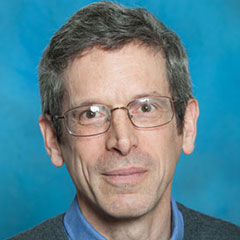
Dan Weeks (Course Organiser)
University of Pittsburgh, USA
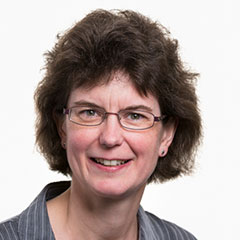
Heather Cordell
Institute of Genetic Medicine, Newcastle University, UK
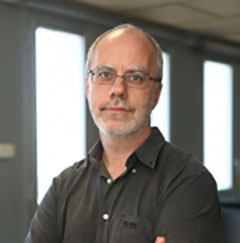
Simon Heath
Centre Nacional d’Anàlisi Genòmica (CNAG), Spain
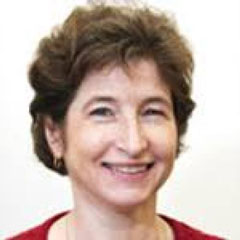
Janet Sinsheimer
University of California, Los Angeles, USA
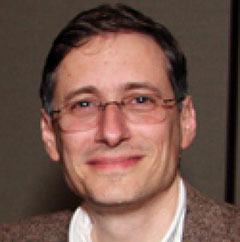
Eric Sobel
University of California, Los Angeles, USA
Joe Terwilliger
Columbia University, New York, USA
Guest instructors
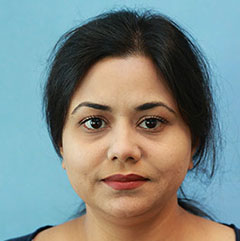
Najaf Amin
Erasmus Medical Centre, Rotterdam, The Netherlands
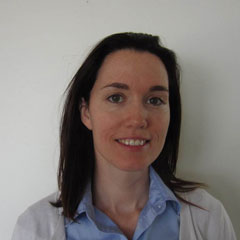
Kelly Burkett
University of Ottawa, Ontario, Canada
Guest speakers
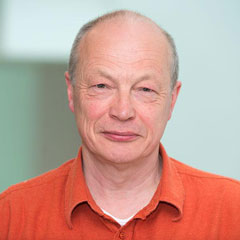
Chris Haley
University of Edinburgh, UK
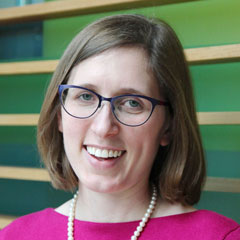
Hilary Martin
Wellcome Sanger Institute, UK
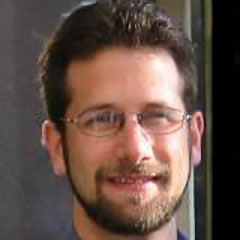
Marc Suchard
University of California, Los Angeles, USA
How to apply
Prerequisites
Applicants should be advanced Ph.D. students and post-docs who are early in their careers, whose projects involve data that could be analysed by the methods covered in this course. Since we emphasize methods for handling family data, there is a preference for candidates who have some family data or who are likely to have access to family data in the near future. Programming experience is not required, but candidates without prior experience with the Unix/Linux/Mac command line will be expected to read through a tutorial on this topic prior to the course.
How to Apply
Please complete the online application form. Places are limited and will be awarded on merit. If you have any problems with the online application process, please contact us.
Please note: Applications must be supported by a recommendation from a scientific or clinical sponsor (e.g. supervisor, line manager or head of department). A request for a supporting statement will be sent to your nominated sponsor automatically during the application process. Applicants must ensure that their sponsor provides this supporting statement by the application deadline. Applications without a supporting statement cannot be considered.
Travel visas
Successful applicants will be provided with a support letter for their visa application, if required.
Please visit the following websites for further information on visiting the UK:
Cost
| Cost | Accommodation / meals | |
| *Course fee | £995 | This is a residential course and the fee includes all accommodation and meals. |
*The course fee is subsidised by Wellcome Genome Campus Advanced Courses and Scientific Conferences and applies to non-commercial applicants. Please contact us for the commercial fee.
Bursaries
Limited bursaries are available (up to 50% reduction on the course fee) and are awarded on merit. If you would like to apply for a bursary, please complete the bursary section of the online application form.
Where there are many bursary applications, the selection committee may issue smaller amounts.
Bursaries can be applied for as part of the course application form. Applicants will be notified of a bursary award along with their place on the course, usually within one month of the application deadline. The decision of the selection committee is final.
Please note that both the applicant and sponsor are required to provide a justification for the bursary as part of the application.
Additional funding opportunities
Visit our support page for additional financial support currently available.
Accommodation services phishing scam – please be vigilant. More information.
Testimonials
Feedback from the 2018 course:
“Fantastic course, and fantastic instructors, created an excellent environment for learning and thinking.”
“This course far exceeded my expectations. I will definitely look back on this experience as a highlight of my PhD!!”
“For me personally, I very much appreciated the style of having a combination of talks that covered both the basic principles of various issues as well as more advanced lectures on the same issues, something for everyone considering the different backgrounds people had. Also, the incredible networking opportunities and the interaction with instructors, who were incredibly approachable and helpful at all times.”
“To have access to the instructors from breakfast till late evening was fabulous. Some of the most fruitful conversations were held during break times. And the fact that many of the instructors actively wanted to socialise with us in the evenings was really nice. They didn’t just hide away when they weren’t teaching. I found they were extremely generous with their time and sharing their knowledge. The accommodation and catering were so much more than I had expected! Absolutely fabulous.”
“The lectures and discussion with the teachers were the best part especially the guest lecturers who once were students in the same course were able to show how much they have learnt over the years.”
“The best part was just having the opportunity to be mentored by a group of amazing geneticists and statisticians. I can’t think of another situation where I’d spend most of every day, for a week, hanging out with people of such expertise. I also really liked the opportunity to present my research (and hear about the other students’ research) and receive helpful feedback. I also loved the intensity of the course … the long hours over several days was great. Although my brain is full now, I feel I have learnt so many new concepts and consolidated others and I feel a better scientist because of it. The intensity of the course made the journey halfway around the world so worthwhile.”

